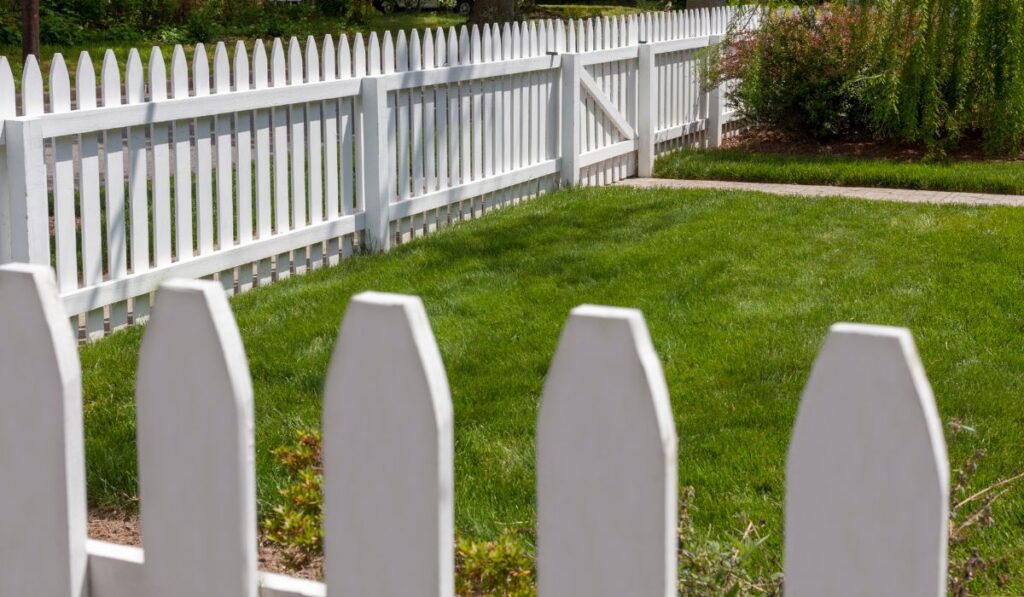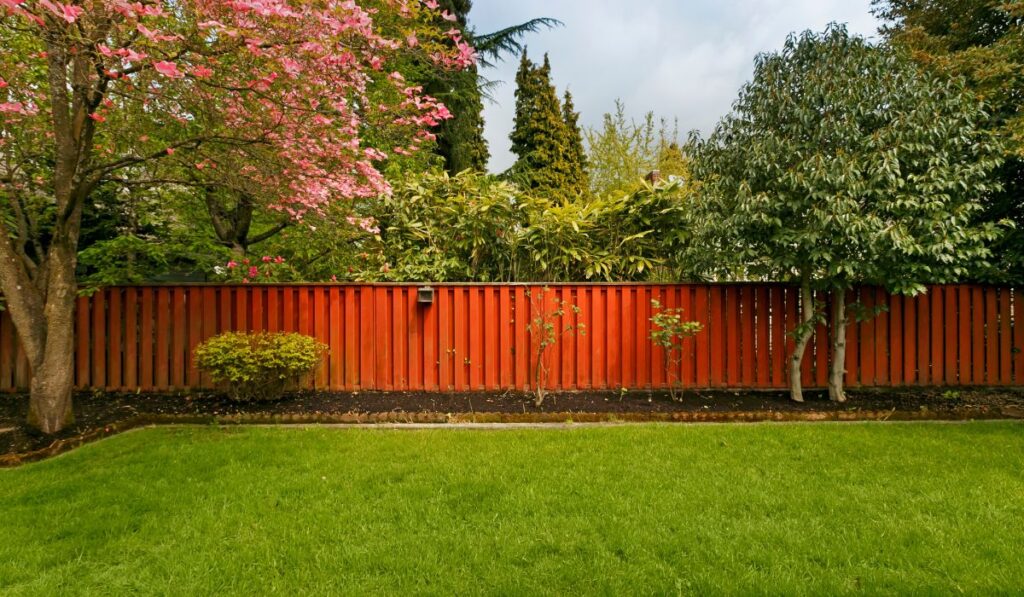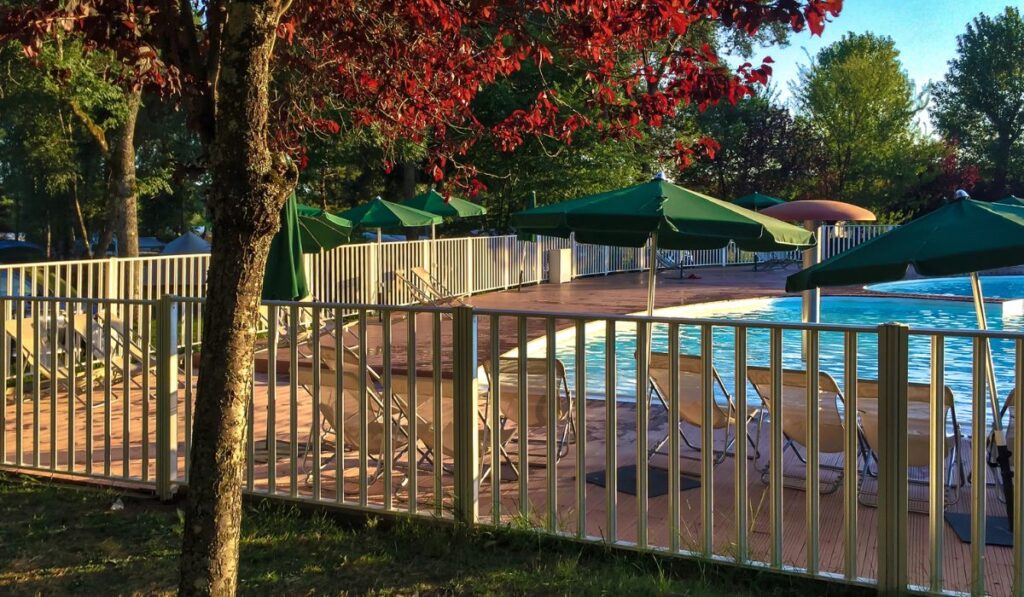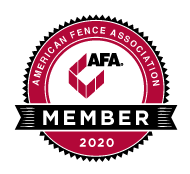Having a fence can enhance the privacy, safety, and curb appeal of your home. A high-end privacy fence can provide a break between street traffic and your home. It can also add a layer of security and privacy between your home and the outside world. With so many reasons to add a high-end privacy fence to your home, you may be eager to get started.
However, there are several factors to consider when deciding to install a privacy fence on your property. We will cover some of the basics and FAQs to help you prepare for your fencing project.
What makes privacy fences different?
Privacy fences differ from other types of standard fencing. They are specifically designed to serve as a physical and visual barrier between your home and your neighbor or even those passing by on the street.
Since privacy fences are a standard four to eight feet in height, they serve the specific and particular purpose of providing excellent privacy and security for the homeowner or business.
In most cases, a privacy fence will feature a solid infill. This means that you won’t see any gaps between the slats. However, that doesn’t mean privacy fences aren’t attractive! You can still add plenty of decorative flairs, such as adding latticework to the top to enhance its aesthetic appeal..
What is the best fence for privacy?
Cedar, teak, and redwood are popular fencing material types for their durable and long-lasting properties. These are known for being high-end privacy fence materials. Bamboo fencing has become an eco-trend option since it grows so fast and is considered more sustainable. PVC/vinyl and pressure-treated woods are great options for price, durability, and resistance to rot and bugs. Many materials can be used to create an elegant, attractive privacy fence. Just take care to plan a nice design that fits your home, property, and neighborhood.
What is the most cost-effective privacy fence?
There are two ways to think of costs when it comes to high-end privacy fences: upfront and long-term. Upfront costs relate to the materials and installation. Higher-end materials like teak or PVC/vinyl will cost more to purchase and install. However, the ongoing maintenance and durability costs can be the biggest factor in your decision.
Upfront costs of installing a high-end privacy fence
Treated pine tends to be the most affordable and durable wood option. Moving up the price list, cedar is next, followed by redwood and teak at the top end. Vinyl, wrought iron, brick, or stone fences are typically the most expensive fence type.
Long-term costs of installing a high-end privacy fence
PVC/vinyl fences require the least amount of maintenance, the lowest cost long-term, and the highest durability. Wood fences will need to be sanded, stained, re-painted, and replaced over the years.
What is the most durable material for a high-end privacy fence?
Vinyl fencing can last 30 or more years with minimal maintenance required. Unlike wood, which can warp, rot, or shrink over time, vinyl is rigid and resilient. It is resistant to pests, rain, snow, temperature changes, and other elements. Therefore, vinyl fencing is the longest-lasting fence material and the least expensive long-term option.
How do I extend the height of my fence for added privacy?
If you already have a wood fence in place, you can add material to extend the height. The easiest way to secure a privacy fence extension is to use a wood extender. From there, you can add a lattice or fence panel that matches your fence. However, be aware that some local officials might place a cap on the height of the fence. In fact, extending a fence might call for a permit, so be sure to check local building codes.
Adding a lattice topper is a great way to extend your fence. If you prefer adding fence panels instead of lattices, you can use a post extender. A post extender is a sleeve that you can place on the existing post. After installing the sleeve, your contractor will place the new post section on top of the extender.
If your existing fence is a material other than wood, contact a professional to help you determine extension options.
Privacy fence materials: Pros and Cons
The style and material you choose for your fence really matter. Let’s take a look at the pros and cons of some popular options.
Vinyl Privacy Fence
If you don’t like the look of natural or composite wood, vinyl is another great option for your privacy fence. It’s a composite plastic material that’s incredibly durable. Like composite wood, vinyl comes in panels, so it has a very similar aesthetic to traditional wood fencing. However, one potential drawback is that it doesn’t handle extreme weather quite as well as composite wood does.
Vinyl is also one of the most expensive privacy fence materials, but it’s incredibly easy to maintain. You’ll likely get your money’s worth out of a vinyl privacy fence, even though it costs more on the front end.
Vinyl Pros
- Low maintenance
- Easy to clean
- Highly durable
Vinyl Cons
- May not hold up well in extreme weather
- More expensive than natural or composite wood
- Limited color options
Do vinyl fences hold up well?
Yes, vinyl fences are highly durable. They can last up to 30 years with proper maintenance. And maintenance is easy! All you need to do is clean your vinyl fence every year or so to keep it in great condition. Dish soap and water will do the trick. If you notice mold or mildew growth, spray the fence with a mildewcide. Unlike natural wood, vinyl fences won’t rot.
Can a vinyl fence stand up to strong winds?
Most vinyl fences can handle wind speeds of up to 100 miles per hour, depending on the quality of the installation. And that’s why professional installation is so important! Professional installers like those at Bravo Fence Company will be sure to install the fence posts deep enough for ultimate durability.
Keep in mind that vinyl does not expand and contract in response to changes in temperature. However, prolonged harsh weather can still damage a vinyl fence.
Composite Wood Privacy Fence
An attractive and reliable option for a high-end privacy fence is composite wood. Composite wood is extremely durable and relatively easy to install. Better yet, composite wood fences are very low maintenance. Unlike natural wood fencing, a composite fence won’t rot or wear down over time. Thus, a composite fence is preferable over natural wood if you live in a humid climate or one that gets a lot of rain.
Composite Wood Pros
- Durable
- Low maintenance
- Comes in a variety of colors
- Easy to clean
Composite Wood Cons
- Color may fade over time
- Prone to stains and mold growth
- Expensive compared to natural wood
Is a composite fence stronger than a wood one?
Composite fences are much stronger than natural wood. It is more weather-resistant and mold resistant than natural wood. As an added bonus, it won’t rot. However, composite fences are more expensive than natural wood. But you’ll often get your money’s worth for this high-end privacy fence material because of its high durability.
Can you paint a composite wood privacy fence?
Yes, you can! If you want to paint your composite wood privacy fence, latex paint is the best type of paint. It adheres to the wood well, just as long as you sand, clean, and dry the wood properly before applying.
Aluminum Privacy Fence
Looking for a completely different fencing design? Then aluminum could be right for you! It’s a highly durable and rust-resistant material. But the best part? It is also cheaper than wood materials. Aluminum fences are affordable, but they are not an easy DIY job, so be sure to hire an experienced installer for your project.
While vinyl and wood fences have panels that completely block your view, aluminum fences offer much less privacy. However, there are often ways you can boost privacy with other materials, including plants or other options. Aluminum fences have more of an industrial look than wood fences. But they’re still a practical, low-budget, low-maintenance option.
Aluminum Pros
- Affordable
- Environmentally friendly
- Low maintenance
- Incredibly durable
- Rust-resistant and weather-resistant
- Variety of color options
Aluminum Cons
- Doesn’t offer great privacy
- Fewer style options
Is an aluminum privacy fence more affordable than a wood one?
Aluminum fencing is less expensive than wood. Plus, in the long run, aluminum is the more cost-effective option because of its lower maintenance. Both fence materials cost about the same to install.
Are aluminum fences a sturdy option?
Yes, aluminum is a sturdy choice. While it’s not as powerful as steel or other metals, it’s more affordable and still strong. It is sturdier than natural or composite wood. Aluminum is also highly weather-resistant and rust-resistant, making it a great option for your outdoor privacy fence.
FAQs about high-end privacy fences:
Are privacy fences rude?
No, privacy fences are not rude in and of themselves. However, if you’re concerned about how they might be received by your neighbors, it never hurts to check. Before adding a privacy fence, a good rule of thumb is to see what fences in the neighborhood look like. You want your new high-end privacy fence to enhance your home’s privacy AND beauty. You also must adhere to any homeowners association rules or local building codes.
How high can a privacy fence be?
It depends on where you live. Privacy fences are typically 8 feet tall. This is taller than the usual fence height of 6 feet. However, many neighborhoods will only allow fences in the front yard to be built up to 3 or 3.5 feet tall. Be sure to check all regulations BEFORE you begin a fencing project to avoid fees, fines, or worse – the expense of tearing down a new fence!
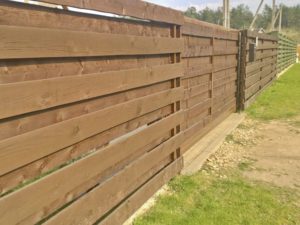
Is it cheaper to build a fence horizontally or vertically?
Horizontal fences tend to be more expensive than vertical fences. This is because they require a higher grade of lumber for the fence boards to reduce the possibility of sagging. Even so, like any horizontally-oriented board, they may sag over time. However, if you use a material like PVC vinyl, this may not be an issue. Horizontal fences may cost more in labor, but it may be worth the small difference if you are set on this design/style.
What is the least expensive type of fencing?
Wire fencing is the cheapest, followed by chain link fencing, then wooden fencing. If you are willing to splurge, vinyl, aluminum, and wrought iron are more expensive options to consider. Wire fencing will not offer much privacy. Chain link fences can provide good security but not much privacy. In order to add privacy, you would need to add filler materials or plant bushes or vines along the fence.
Can I put a trellis on top of a 6-foot fence?
If it is not against any height limits where you live, then yes. You’ll need to install supports from the ground up to the top of the additional trellis. For example, if the trellis is 4 feet tall, you’d need supports that are 10 feet tall. A professional fencing company can help you determine the regulations where you live and safely install an extension or trellis.
Getting your own high-end privacy fence
Whatever your reason for building or extending your fence, there are some basic rules to follow. Be sure to check with all local authorities regarding rules before you begin your project. Consider your willingness to tend to ongoing maintenance, as this will impact the materials you choose. If you have a relationship with your neighbors, reach out and let them weigh in. Take a stroll around your neighborhood and take some photos of other fences to inspire you.
If you are ready to start your fencing project, contact the professional at Bravo Fencing Company. We’ve been in the business for nearly 20 years, and with us, you’re not simply shopping for a product off the shelf. We work with you, so you are buying the fence that is designed, formulated, and installed with thoughtfulness and detail. Reach out today!

